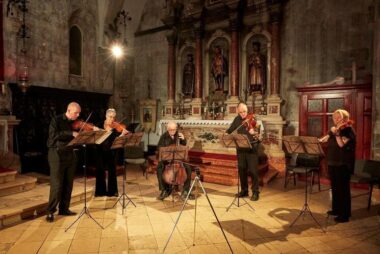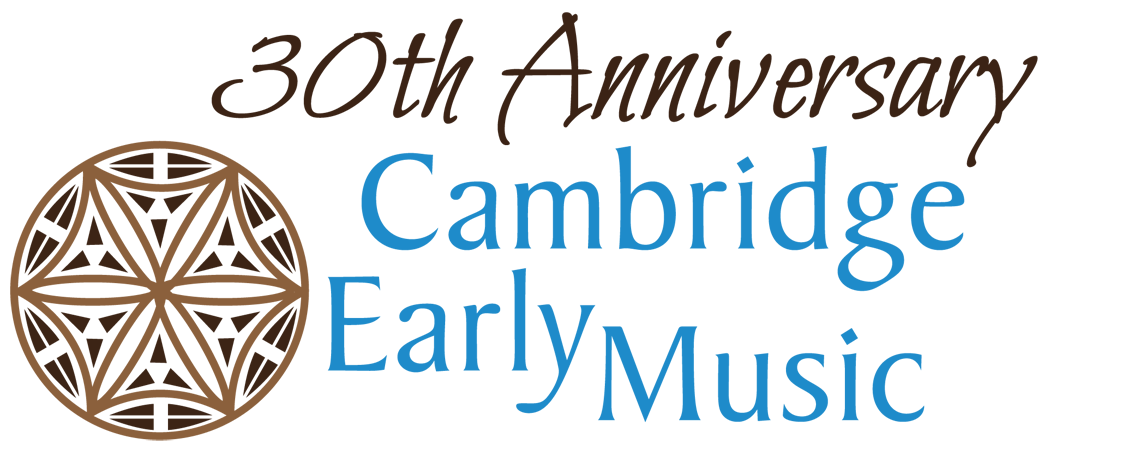Ahead of their concert on 15th November we talked to Oliver Webber of the Monteverdi String Band.

Tell us about how the Band was formed
As individuals, earlier in our careers, we would often perform works like Monteverdi’s Vespers, and were always impressed with the wonderful cornett and sackbut ensembles – especially their intimate knowledge of the style and brilliant ornamentation. Strings tended to be booked rather haphazardly and as a result, string bands rarely provided a good foil for the winds. Wendi Kelly (viola) & I created the band in the early 2000s to fill that gap. We relished the chance to immerse ourselves in Monteverdi’s style and idioms, and when we had the chance to create programmes of our own, we looked for inspiration beyond music – in literature, culture and science. It has been a fascinating journey and one we look forward to taking further.
What can the audience expect from The Madrigal Reimagined?
What we offer in this programme is a series of vignettes, opening a window on the different styles, textures, and emotions of the musical manifestations of the madrigal: a poetic form described in the 16th century as being characterised by un non so che di frizzante; that word frizzante could refer to everything from the feel of sparkling wine on the tongue to the sting of a nettle, so it encompasses a wide range of emotions which composers took full advantage of – especially once the transgressive seconda pratica became more widespread around 1600.
They will hear everything from the intimacy of delicately ornamented voice and lute (compared by some contemporaries to ‘a sweet pastry’) to a full ensemble performing poignant operatic highlights; one of our favourite textures, which we have added more of for this concert and upcoming recording, is voice and string ensemble; Hannah Ely’s voice and approach to this repertoire is perfectly suited to blending with strings, and the intertwining of voice and instruments is something we find especially satisfying.
We also give a selection of readings to punctuate the evening: these offer little insights into the musical, theatrical, and literary life of the musicians whose music we are performing.
What’s been your personal favourite concert the Band has given?
I think it has to be our staged performance of Monteverdi’s Il Combattimento di Tancredi e Clorinda in Venice for Martin Randall in 2015: it was such a thrill to have the budget for costumes, staging – including choregraphed sword-fights with antique Venetian swords! – and specially designed lighting. The band was lucky to be supported by a wonderful team of singers, stage director and lighting designer; we had devised a programme imitating the evening of the first performance of the work, when, according to Monteverdi, the Combattimento started suddenly as a staged event after several performances of ‘normal’ madrigals, poetry readings, etc. Members of the audience were visibly moved as Clorinda breathed her last, and we felt we had gone some way to recreating a very special event from four centuries ago.
Do you have links to Cambridge?
I was a student here in the late 80s, reading Natural Sciences and playing as much music as I could. In my last year I took History and Philosophy of Science, which turned out to be a very useful background for developing another favourite programme of ours, the concert-play Galileo, with a script by Clare Norburn. This is the first time the band has played here though, and we are excited to have been invited!
It’s our 30th anniversary this year. If money and time were no object, how would you choose to celebrate with us?
I’ve spent a while dithering between a revival of Il Combattimento and Galileo, but since you’ve said money no object, let’s say both – in fact, why not a Monteverdi & contemporaries festival? We could still give The Madrigal Reimagined, and then L’Orfeo (which I have longed to put on again ever since our performance with BREMF a few years ago), Il Combattimento, and Galileo – which explores the great man’s later years, reflecting on his literary, scientific, and musical past – as the grand finale. There could be workshops, masterclasses, schools events, lectures etc in between the performances. We just need a lottery win…!
